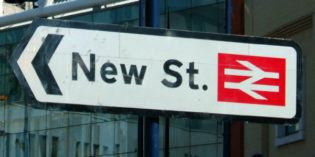Building sub-national government

Tilting at linguistic windmills: a million Welsh speakers
The target of creating one million Welsh speakers in Wales by 2050 announced by the Welsh Government as the central goal of its Welsh Language Strategy (‘Cymraeg 2050. A million Welsh speakers’) has captured the headlines: and why should it not? After all, that would mean effectively doubling the number of Welsh speakers. It would […]

Audit 2017: How democratic is the overall set-up of devolved government within the UK?
Devolution in the UK encompasses a range of quite different solutions in three countries (Scotland, Wales, and Northern Ireland), plus lesser delegations of powers to London and some English cities. Designed to meet specific demands for national or regional control and to bring government closer to citizens, there are important issues around the stability and […]

England’s devolved regions are too small. Bigger ones would have more clout
England’s political identity is too often driven by the south, argues Ed Cox. People in the north identify much more closely with their cities and regions than with the pan-England flag. Attempts to devolve government in the north have shown some promise but are partial and piecemeal and the current city-regions and combined authorities are too […]

Audit 2017: How democratic are the key institutions of devolved government in Wales?
Devolved government in Wales started as a radical innovation in bringing government closer to citizen. Its generally successful development has generated great expectations about the National Assembly for Wales and the Welsh government acquiring more powers – and perhaps being reformed in some respects. As part of the 2017 Audit of UK Democracy, Jac Larner […]

Audit 2017: How democratic is the devolved government of London?
Devolved government in London – focusing on the executive Mayor and Greater London Assembly – started as a radical innovation in 2000. Its generally successful development has sparked a slow, ‘organic’ spread of executive Mayors to other English cities and conurbations. As part of the 2017 Audit of UK Democracy, Andrew Blick and Patrick Dunleavy explore how democratically and […]

Audit 2017: How democratic is local government in Northern Ireland?
Local authorities play key roles in the devolved government of Northern Ireland, as expressions of communities that were in the past highly polarised on religious and political lines. They are also the only other source of elected legitimacy to the Northern Ireland Assembly and Executive, and can act as checks and balances on the domestic […]

Audit 2017: How democratic is local government in Scotland?
Local authorities play key roles in the devolved government of Scotland, as the only other source of elected legitimacy and as checks and balances on the domestic concentration of power in Scotland’s central institutions. As part of the 2017 Audit of UK Democracy, James Mitchell and the Democratic Audit team explore how democratically local councils have […]

The Brazilian experience: democracy, at its fullest, saves lives
Brazil is a deeply unequal democracy which enjoyed an economic boom in the 2000s – and is now suffering from a recession and the threat of austerity cuts. Michael Touchton, Natasha Borges Sugiyama and Brian Wampler analysed the factors that led to falls in infant mortality. They found that while competitive local elections were important, they alone […]

Audit 2017: How democratic are the central institutions of devolved government in Scotland?
Devolved government in Scotland started as a radical innovation in bringing government closer to citizens, and its development has generated great expectations including strong pressures for and against the Scottish Parliament and government becoming the core of a newly independent state. As part of the 2017 Audit of UK Democracy, Malcolm Harvey and the Democratic Audit […]



 Democratic Audit's core funding is provided by the Joseph Rowntree Charitable Trust. Additional funding is provided by the London School of Economics.
Democratic Audit's core funding is provided by the Joseph Rowntree Charitable Trust. Additional funding is provided by the London School of Economics.